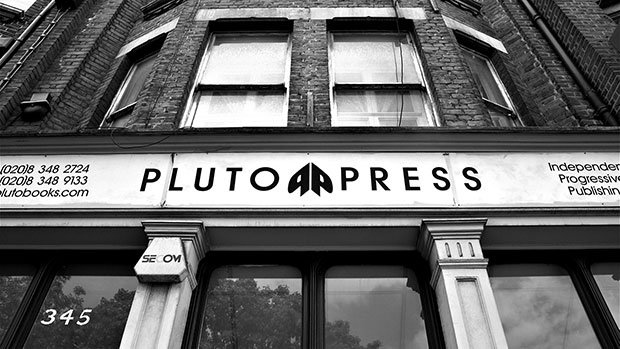Founded in 1969 by Richard Kuper, Pluto Press emerged in London as a publishing house committed to challenging dominant political ideologies and fostering activism. Pluto Press quickly gained traction by advocating for Trotskyist and Marxist viewpoints and supporting the broader revolutionary left. Over the years, it has evolved into one of the world’s most influential publishers in radical left-wing thought, remaining dedicated to amplifying voices and ideas that resist mainstream capitalist frameworks.
A Publishing House for the Radical Left
Pluto Press’s catalog spans a wide array of critical non-fiction topics, from left-wing and far-left political theories to social justice issues like race, feminism, international relations, and environmental justice. The press’s publications are marked by their anti-capitalist, internationalist, and independent ethos:
- Anti-Capitalist
With a foundation in Marxist thought, Pluto Press has maintained a stance against global economic structures that prioritize profit over human welfare. This anti-capitalist orientation is seen in many of its publications, which advocate for alternatives to the current global order. - Internationalist
Pluto Press is committed to providing a platform for activists worldwide, with books that address global social issues and are distributed in multiple languages. This international approach highlights a vision of interconnected struggles, from labor issues in Western countries to emerging activism in the Global South. - Independent
Unaffiliated with any specific political party or organization, Pluto Press publishes a wide range of critical perspectives. This independence has allowed the press to present diverse viewpoints within the leftist sphere, encouraging debate and dialogue among its readership.
Notable Authors and Key Publications
Over the decades, Pluto Press has published influential works by authors whose ideas have shaped progressive thought globally. Their catalog includes works by prominent thinkers like Frantz Fanon, Noam Chomsky, bell hooks, and Edward Said, as well as modern voices like Ilan Pappé, Vandana Shiva, and John Holloway.
Some of their significant publications include:
- “Hidden from History: 300 Years of Women’s Oppression and the Fight Against It” by Sheila Rowbotham, which explored historical struggles for women’s rights.
- “State of the World Atlas” by Michael Kidron and Ronald Segal, a widely successful visual guide to global socio-political trends.
- “Arguments for Socialism” series, which provided accessible introductions to socialist thought and its applications.
These and other publications have cemented Pluto Press as a key player in left-wing publishing, providing foundational texts for students, activists, and academics worldwide.
Expanding Beyond Books: Pluto Press’s Broader Influence
During the 1970s and 1980s, Pluto Press expanded its reach by collaborating with various organizations and alternative distribution channels. It sold directly to trade unions, women’s groups, student unions, and a network of radical bookshops. Its partnerships with American publishers like Urizen Books and South End Press further strengthened its international influence.
Pluto also took unique approaches to publishing by printing play scripts in collaboration with the Royal Court Theatre, making plays accessible to a broader audience. This initiative underscored Pluto Press’s commitment to innovative, activist-driven publishing.
A Legacy of Activism and a Vision for the Future
Today, Pluto Press remains headquartered in London, with Veruschka Selbach as CEO and David Castle as Editorial Director. The press continues to focus on publishing works that address contemporary struggles, from economic justice to environmental sustainability and human rights. Their titles can be found on bookshelves around the world, representing voices from diverse movements and global perspectives.
The radical legacy of Pluto Press is seen not only in its historic contributions to leftist literature but in its ongoing dedication to creating what it calls “timely interventions in contemporary struggles.” This steadfast commitment to independence and radicalism ensures that Pluto Press remains a vital resource for readers seeking transformative change and a critique of prevailing capitalist norms.





















